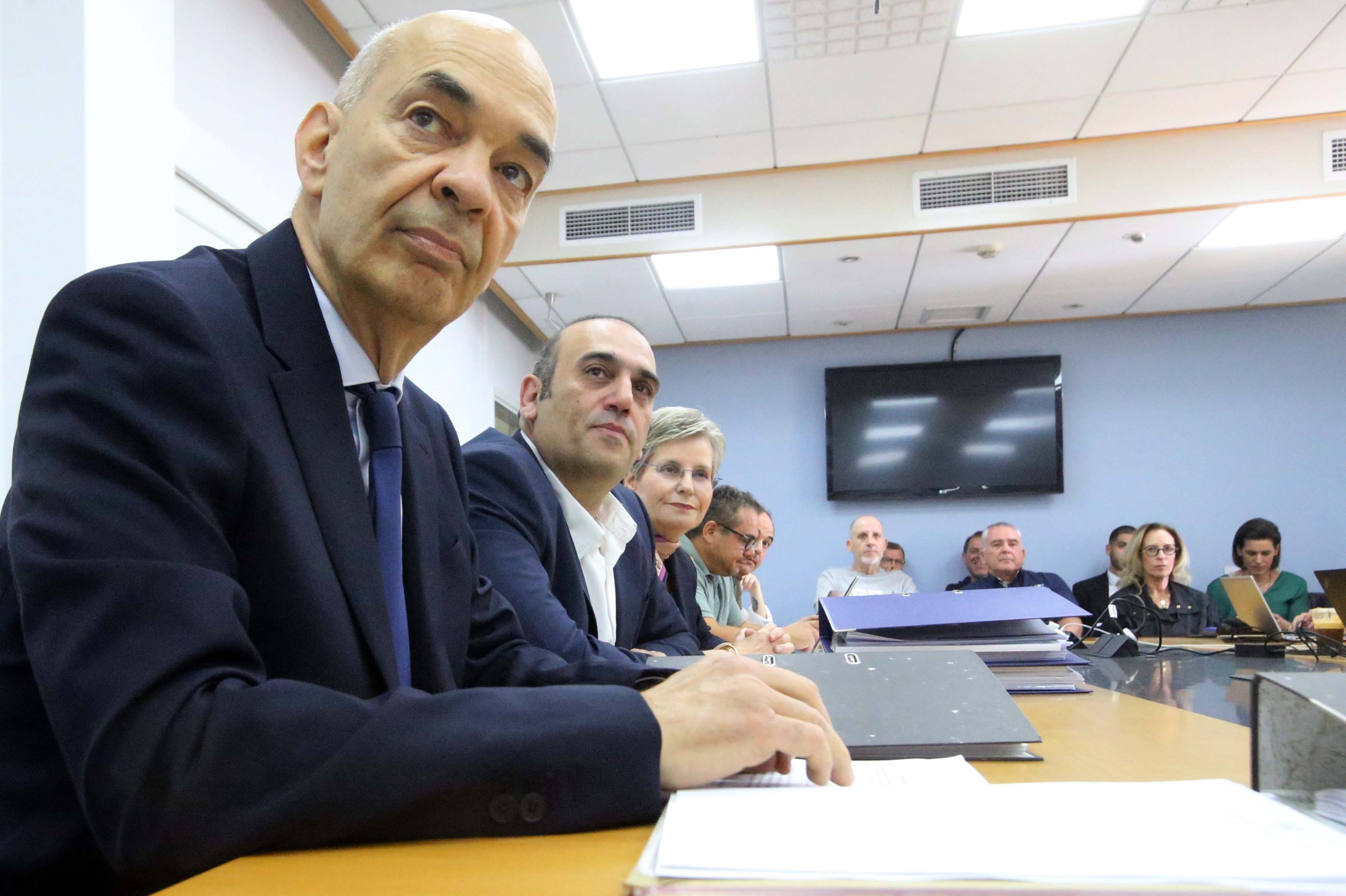Transport Minister Alexis Vafeades on Wednesday said he was first made aware about the issue of faulty airbags manufactured by Japanese company Takata by the father of one of the people who was killed in an incident related to the faulty airbags.
Addressing the committee formed to investigate the history of faulty airbags in Cyprus, he said he had met Yiannos Oxinos, the father of Kyriakos Oxinos, in April 2023, three months after Kyriakos Oxinos had been killed in a road traffic collision.
“During the meeting, he informed me about his son’s tragic, fatal accident, and his belief that the fatality was probably caused by a defective airbag. In the meeting with Yiannos Oxinos, I was informed for the first time about defective Takata airbags and thus this issue’s connection with vehicle recalls,” he said.
He said that it was two days after that meeting that he was informed by then permanent secretary Yiannis Nicolaides that the road transport department had allowed automobile distributors to block MOT tests on cars which had been subject to recalls but of which the owners had not acted.
On this matter, he said that it was the responsibility of distributors to inform the road transport department of recalls, and that it had been agreed in January 2023 that distributors would make “two or three documented attempts” to contact their customer, and that if the vehicle’s owner is still unresponsive, the road transport department will take action.
That action, he said, entails the road transport department sending a text message to the vehicle’s owner informing them that their vehicle will not be able to undergo future MOT inspections.
He went on to say that later in 2023, the road transport department had “highlighted an inconsistency in the handling of recalls of used vehicles” by distributors, with problems subsequently arising regarding recalls issued for ‘grey vehicles’ – those which are imported second-hand privately.
On the one hand, the vehicle traders’ association (Pasea) had insisted that distributors were the “only party responsible” for the administration of recalls of ‘grey vehicles’, while on the other the motor and electric vehicle importers’ association (Semio) said its members were “under no obligation to inform owners” of ‘grey vehicles’.
“It was obvious that the dispute between distributors and importers created problems in the management of recalls,” Vafeades said.
Later in the hearing, he also poured scorn on a circular issued by the road transport department in 2017, which he said “exempted distributors from any responsibility” regarding ‘grey vehicles’ and the recall thereof, “without defining an alternative mechanism for informing the owners”.
“I did not understand why the 2017 circular was issued the way it was issued. Some people should have known better,” he said.
Looking ahead to the future, he made five suggestions which he said will “restore” the operation of the recall mechanism.
The first suggestion, he said, would be the establishment of a new “vehicle technology directorate”, which would be staffed by mechanical engineers and lawyers.
He also called for the profession of used vehicle importers to be regulated, for knowhow to be exchanged with other European Union member states, for contracts to be signed with vehicle manufactures “to ensure owners are informed”, and for better public awareness campaigns to boost public awareness.
Next to address the committee was Vafeades’ predecessor and current Famagusta district governor Yiannis Karousos, who told the committee that he did not inform Vafeades of the issue with Takata because he was also not aware of it.
“I left a letter to Vafeades citing the critical issues which concerned the ministry, even citing suggestions. I did not make any mention to Vafeades about Takata because I had no information,” he said, adding that he was also unaware of the circular sent by the road transport department in 2017.
Committee chairman Michalakis Christodoulou then asked him why he was not informed by the road transport department or by the electromechanical services, and he said it was “their obligation to inform”.
Christodoulou then said the state “owes an apology” to people who died as a result of faulty airbags, and Karousos concurred.
“The state did not protect. If information had come to the minister, we would have taken measures and prevented a lot. The procedures, the services, the entire ministry did not consider that they should have informed the politician at the top, and yes, the state owes an apology,” he said.
Christodoulou then said that his “blessed grandmother would say mashallah” – an Arabic word meaning “God has willed it” which is commonly used in Cypriot dialects, including Cypriot Greek.
Karousos’ predecessor Vasiliki Anastasiadou was the next to testify, and said that she had also not been informed by her predecessor Marios Demetriades about the matter of Takata airbags.
“I am not saying that we would have solved it, since it is a complex issue, but we would have taken measures,” she said.
Six more former transport ministers are set to testify on Thursday, the committee’s final day of hearings.
Marios Demetriades, Efthymios Flourentzou, incumbent Limassol mayor Nicos Nicolaides, Erato Kozakou-Markoulli, Maria Malachtou-Pamballi, and Haris Thrasou are all set to address the committee.
Takata airbags suffer a fault related to exposure to high levels of heat or humidity, which means they have a tendency to explode when released under such circumstances.
This explosion shoots the airbag’s metal inflator outwards and in the direction of the person it was designed to protect, potentially causing further injuries or, in some cases, death.
In February, Vafeades ordered the recall of more than 80,000 vehicles equipped with potentially deadly Takata airbags, with replacements to be completed by October. Of those, 276 vehicles were immediately immobilised and had their road tax and MOT certificates rescinded.
The committee was created in February to investigate the history of the matter, with previous hearings suggesting that the number of vehicles with unsafe airbags on Cyprus’ roads may have been as high as 90,000, while certain vehicles manufactured by American company Ford were also immobilised earlier this month.
Owners of recalled vehicles that were not immobilised are allowed to continue using them but must book an appointment with the manufacturer’s Cyprus-based distributor within eight months to have the airbags replaced. Their road tax and MOT remain valid.
While the transport ministry recommends that affected drivers avoid using their vehicles and seek alternative transport, compliance is not mandatory and no fines will be issued for continued use.
Motorists can check whether their vehicles have been subject to vehicles on the transport ministry’s website.








Click here to change your cookie preferences